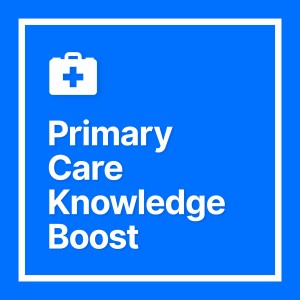
Wednesday Apr 27, 2022
Overactive bladder and continence issues in women
This is another episode with a focus on Urology. Doctors Lisa and Sara invited Professor Ian Pearce back to speak about overactive bladder and urinary incontinence in women. They discuss the types of lower urinary tract symptoms in women (drilling down into the definitions of commonly used terms), before looking at the red flags to consider. They then use fictional cases to illustrate how to approach overactive bladder and incontinence in terms of assessment, investigation and management options.
Useful resources:
-
NICE CKS: Urinary incontinence in women: https://cks.nice.org.uk/topics/incontinence-urinary-in-women/
-
GMMMG Guidelines for assessment and treatment of overactive bladder in adults: https://gmmmg.nhs.uk/wp-content/uploads/2021/08/Management-of-OAB-in-adults-v3-0-approved-Aug-2019.pdf
-
Conservative management tips: Bladder and Bowel Community UK: https://www.bladderandbowel.org/bladder/bladder-treatments/urinary-tract-infection-treatments/
-
Guidelines in Practice: Top tips: urinary incontinence in women: https://www.guidelinesinpractice.co.uk/urology/top-tips-urinary-incontinence-in-women/455577.article
-
Anticholinergic Burden resource 2: Anticholinergic Burden Calculator: http://www.acbcalc.com/
___
We really want to make these episodes relevant and helpful: if you have any questions or want any particular areas covered then contact us on Twitter @PCKBpodcast, or leave a comment on our really quick anonymous survey here: https://pckb.org/feedback
____
This podcast has been made with the support of Greater Manchester Health and Social Care Partnership, GP Excellence, Greater Manchester Training Hub and the GP Fellowship Programme, as well as Wigan Borough CCG. Given that it is recorded with Greater Manchester clinicians, the information discussed may not be applicable elsewhere and it is important to consult local guidelines before making any treatment decisions.
The information presented is the personal opinion of the healthcare professional interviewed and might not be representative to all clinicians. It is based on their interpretation of current best practice and guidelines when the episode was recorded. Guidelines can change; To the best of our knowledge the information in this episode is up to date as of it’s release but it is the listeners responsibility to review the information and make sure it is still up to date when they listen.
Dr Lisa Adams, Dr Sara MacDermott and their interviewees are not liable for any advice, investigations, course of treatment, diagnosis or any other information, services or products listeners might pursue as a result of listening to this podcast - it is the clinicians responsibility to appraise the information given and review local and national guidelines before making treatment decisions. Reliance on information provided in this podcast is solely at the listeners risk.
The podcast is designed to be used by trained healthcare professionals for education only. We do not recommend these for patients or the general public and they are not to be used as a method of diagnosis, opinion, treatment or medical advice for the general public. Do not delay seeking medical advice based on the information contained in this podcast. If you have questions regarding your health or feel you may have a medical condition then promptly seek the opinion of a trained healthcare professional.
No comments yet. Be the first to say something!